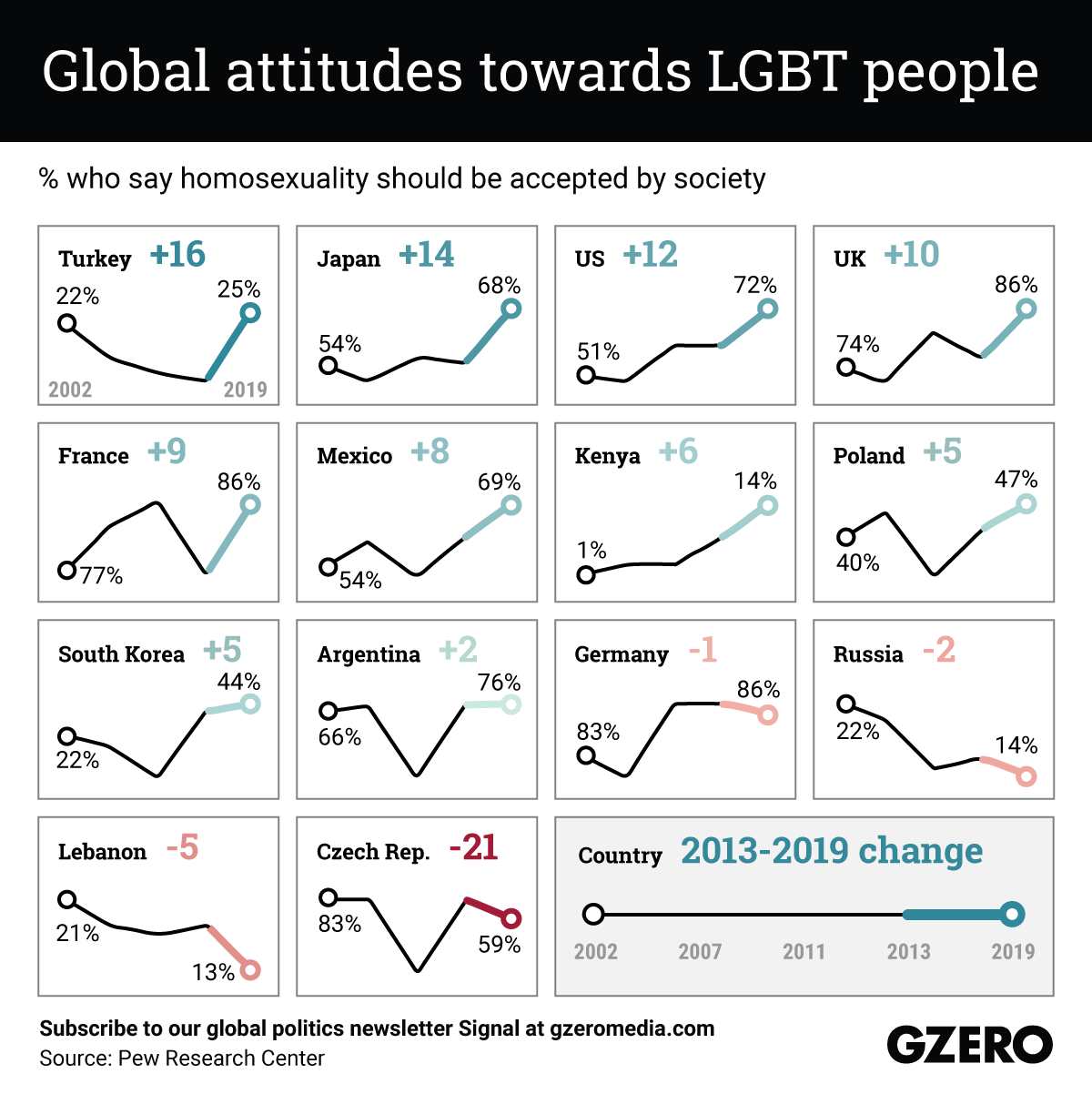June 07, 2021
Different factors shape popular attitudes towards LGBT communities within a given country. In states with heavy religious overtones, like Poland and Russia for instance, the general population is less likely to accept that gay people should be broadly accepted by society. Meanwhile, residents in nations where right-leaning politics dominate are also less likely to support the LGBT community's rights, according to a Pew study. But global attitudes are shifting somewhat: in Japan, where conservative ideas about gender identity and sexual orientation have long dominated, 68 percent of Japanese now think gay people should be fully accepted by society, up from 54 percent in 2002. We take a look at attitudes in select countries from 2002-2019.
More For You
- YouTube
The Supreme Court has struck down President Trump’s use of the national emergency clause to impose sweeping tariffs around the world. In this Quick Take, Ian Bremmer explains why this ruling was predictable and why it’s a major setback for Trump’s trade strategy.
Most Popular
Think you know what's going on around the world? Here's your chance to prove it.
Brice Clotaire Oligui Nguema reacts during the announcement of provisional results of the 2025 Gabonese presidential election by the Ministry of the Interior, at the headquaters of the Rassemblement des Batisseurs (RdB), in Libreville, Gabon, April 13, 2025.
REUTERS/Luc Gnago
2.5 million: The population of Gabon who can no longer get onto certain social media platforms, like YouTube and TikTok, after the government suspended access on Tuesday.
© 2025 GZERO Media. All Rights Reserved | A Eurasia Group media company.
